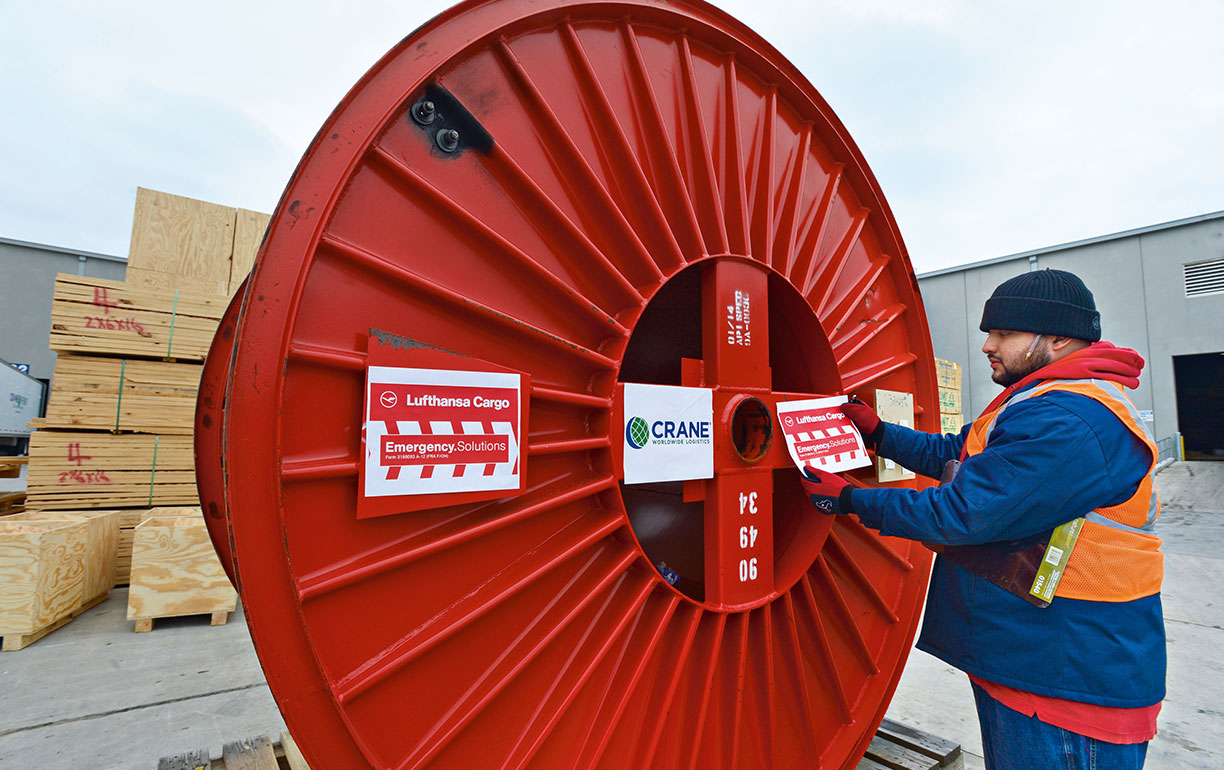
Faster, heavier, farther.
Equipment for the oil drilling industry sometimes needs to reach the operational site immediately. For Crane Worldwide Logistics in Houston this is a job best handled by Lufthansa Cargo’s Emergency.Solutions.
"Houston, we have a problem."
Phone calls with this opener are not always meant ironically. When the equipment on oil drilling sites in the Middle East or West Africa breaks down, a number in the biggest city in Texas is often dialed.
It was here that the worldwide oil rush began in the 19th century, and Houston is still home to the corporate headquarters of some of the oil drilling industry’s biggest equipment suppliers, for example Halliburton and Baker-Hughes.
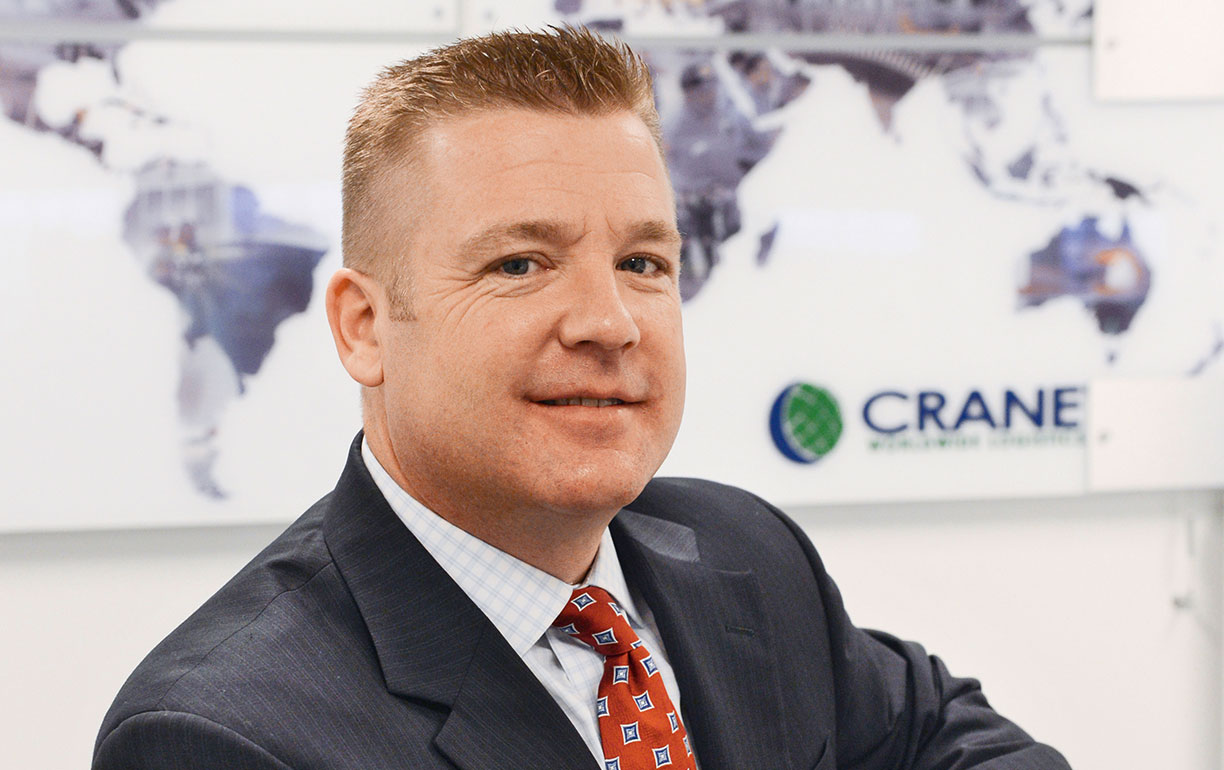
Troubleshooting is one of the main specialties of Crane Worldwide Logistics. The global player with 103 offices in 25 countries and revenues of 575 million dollars is also headquartered in the metropolis on the Gulf of Mexico. If oil stops flowing because of a faulty drill head or broken piping, every minute counts.
“Rig down” means hundreds of thousands of dollars in lost revenue, so the costs of transporting spare parts are of minor significance in comparison. What matters most is that work can resume as quickly as possible.
“In such cases we contact Lufthansa Cargo’s Sales Team in Houston and talk about Emergency.Solutions,” says Josh Jungwirth, Regional Vice President at Crane Worldwide Logistics. This product ensures that an urgently required item of cargo reaches the destination airport via the fastest route, no matter what weight.
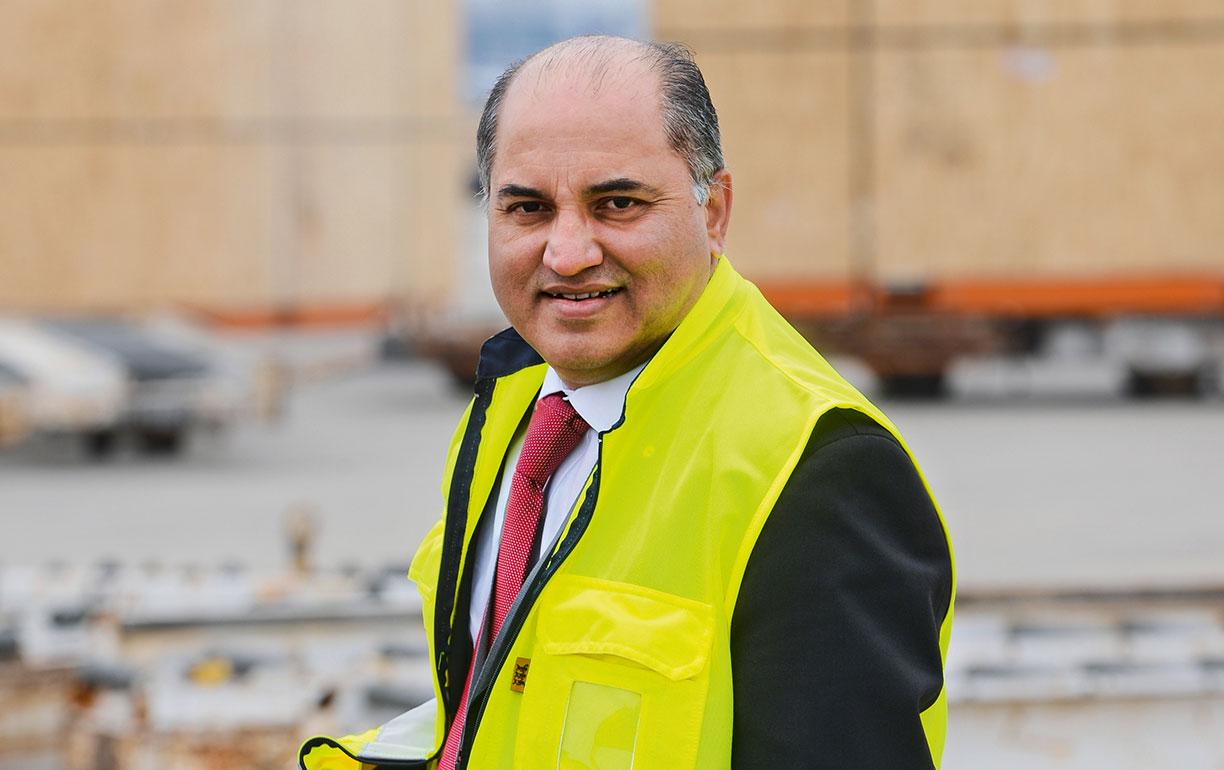
A further important aspect: drilling equipment doesn’t fit into a standard container. For such urgent cases Lufthansa Cargo also offers charter options with Emergency.Solutions. “Our job in Houston is to make transportation happen,” Rohan Lobo, Lufthansa Cargo’s Station Manager there, confirms. “And that is always a challenge. Our heaviest Emergency.Solutions shipment so far weighed 14 metric tons.”
Lobo refers to Malabo to explain how flexibly Lufthansa Cargo works. Malabo? “That’s an airport on the coast of Equatorial Guinea, where there’s a lot of oil drilling but where few airlines with sufficient cargo carrying capacity operate flights. Crane has a customer there whom we have often been able to help out. If the booking is made in the morning, we can reserve the full capacity of the lower deck on the passenger flight at 4:30 p.m.: 4.19 meters long, 1.6 meters high and 2.43 meters wide.”
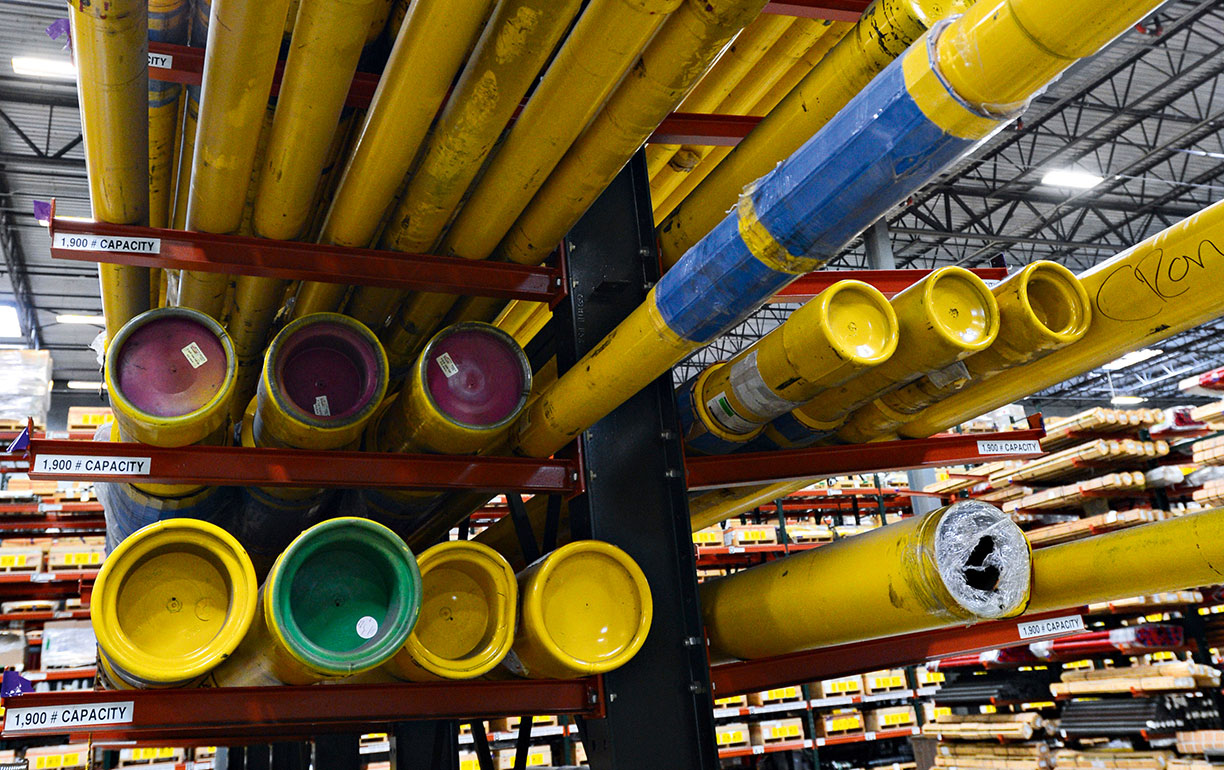
The maximum weight in the belly is normally around 4.5 tons. “In an emergency we go to the limit – we carried such a shipment in October 2013,” says Lobo. “And that was on a Saturday.” The aircraft landed at 9:10 a.m. next day in Frankfurt. The Emergency.Solutions Team stepped in straight away: the shipment was transferred tail-to-tail to flight LH 562, which took off on a non-stop flight to Malabo at 10:30 a.m.
Crane is the most important Emergency.Solutions customer for Lufthansa Cargo in Houston, taking top slot in terms of both turnover and tonnage. “We use this special product about once a month. Whenever our customers have a critically urgent shipment that must be transported immediately – and the only other alternative would be a charter flight,” Jungwirth explains. Apart from Malabo, Tel Aviv is the most important destination for the fast, heavy and out-of-the-ordinary shipments.
Overall, Crane is one of Lufthansa Cargo’s biggest customers in Houston. The energy sector, with its focus on the oil and gas industry, is the logistics company’s number-one field of activity. That fits in well with Lufthansa Cargo’s own strategy, as this sector is one of six key industries the carrier intends to focus on in the future.
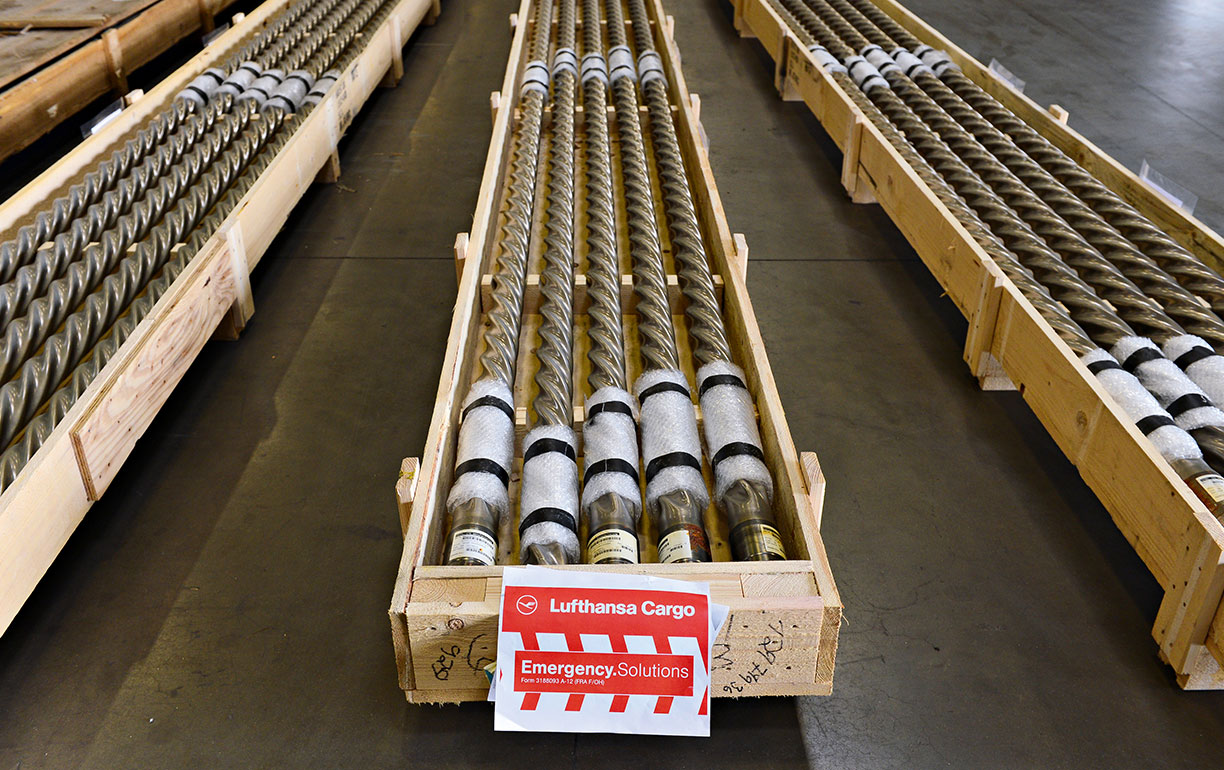
In addition, Crane mainly does business in the sectors Automotive, Industrial/Manufacturing, High-Tech/Telecommunications and Government/Aerospace. Josh Jungwirth is also pleased that Lufthansa Cargo has recently begun operating a particularly efficient freighter, the Boeing 777F. “Crane Worldwide transports cargo of all shapes and sizes. It means a great deal to have the Triple Seven with its extra capacity available for moving our cargo,” he says. In fact, Houston is one of the Lufthansa Cargo stations that has a particularly high share of extremely heavy cargo.
In particular, Crane appreciates the high level of customer orientation at Lufthansa Cargo. “They respond very specifically to our respective requirements, and the handling of dangerous goods is excellent,” says Jungwirth.
“A great advantage of Emergency.Solutions by the way is the fact that we receive regular updates on the current whereabouts of the shipment. So we don’t have to rely on a website to inform our customers about its progress.” Personal contact therefore remains important, even when all data are available in real time online. “The 24/7 hotline is a further module that we welcome in this service package,” Jungwirth stresses.
Lufthansa Cargo’s Rohan Lobo also confirms how well everything works together. “Our Sales Team has an excellent relationship to the Account Manager at Crane Worldwide,” he says. “They talk a lot on the phone, and a colleague from our Team visits him at least once a week.” This commitment pays off as Crane plans to expand even more vigorously: it expects to hire more than 4,000 employees worldwide over the next five to seven years. So in the future phone calls will sign off even more often with the words “Houston, we’ve solved the problem!”
Team for oil and gas
Lufthansa Cargo is making business with the oil and gas industry a stronger focus. The customers will profit from having direct contact partners worldwide, who are able to offer solutions at all times for the often challenging transportation tasks. From now on, a separate, international Industry Team will be coordinated from Stockholm.
In addition to the Scandinavian markets, first and foremost Norway, the oil and gas business plays a major role at locations such as Aberdeen in Scotland and Dubai in the United Arab Emirates.
In the future, experts at a total of eleven stations in the Lufthansa Cargo network will attend to business with customers from this industry. One aim is to intensify the direct communication with the industrial companies and their specialist oil and gas divisions.
“The needs of our customers from the oil and gas industry are often highly individual. If, for example, spare parts are required for an oil rig, every minute counts,” says Alexander Kohnen, Regional Director Nordic & Baltic Countries at Lufthansa Cargo. “We intend to reposition ourselves with a greater customer focus in order to ensure the fastest and safest possible transportation of urgently needed freight.”
Emergency.Solutions 24-hour hotline
+49 151 58928623
Photos:
Tobias Everke
Team for oil and gas
|
Lufthansa Cargo is making business with the oil and gas industry a stronger focus. The customers will profit from having direct contact partners worldwide, who are able to offer solutions at all times for the often challenging transportation tasks. From now on, a separate, international Industry Team will be coordinated from Stockholm. In addition to the Scandinavian markets, first and foremost Norway, the oil and gas business plays a major role at locations such as Aberdeen in Scotland and Dubai in the United Arab Emirates. In the future, experts at a total of eleven stations in the Lufthansa Cargo network will attend to business with customers from this industry. One aim is to intensify the direct communication with the industrial companies and their specialist oil and gas divisions. |
“The needs of our customers from the oil and gas industry are often highly individual. If, for example, spare parts are required for an oil rig, every minute counts,” says Alexander Kohnen, Regional Director Nordic & Baltic Countries at Lufthansa Cargo. “We intend to reposition ourselves with a greater customer focus in order to ensure the fastest and safest possible transportation of urgently needed freight.”
Emergency.Solutions 24-hour hotline |
Photos:
Tobias Everke
